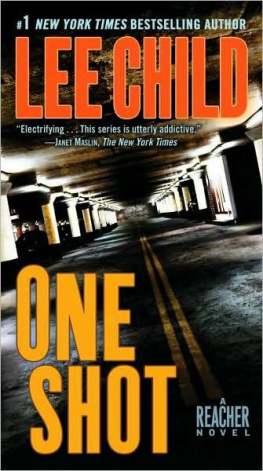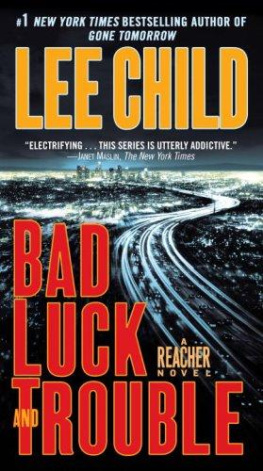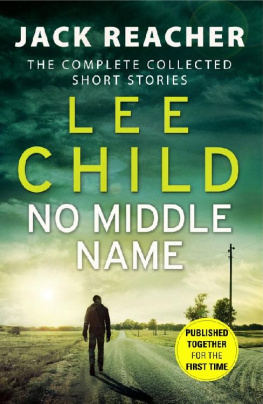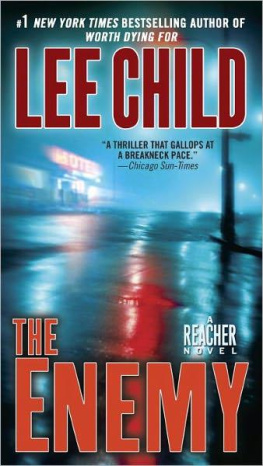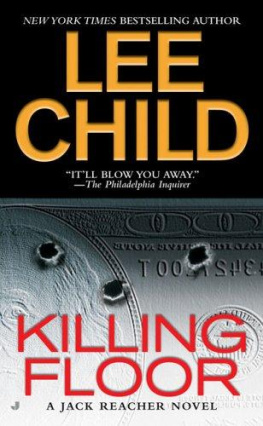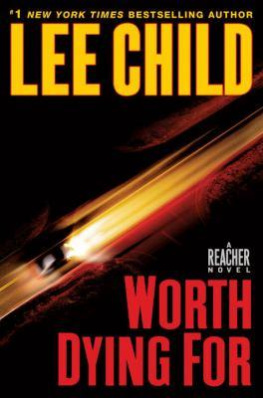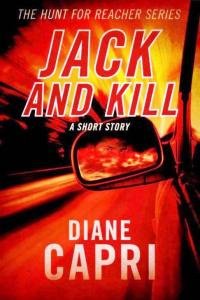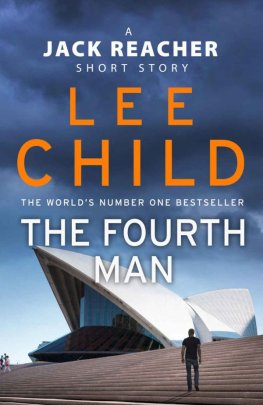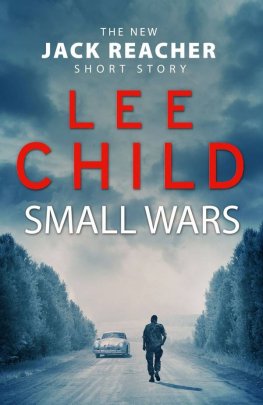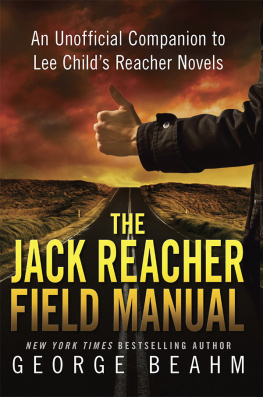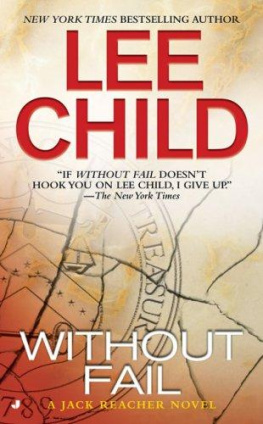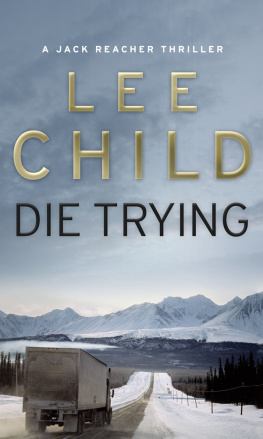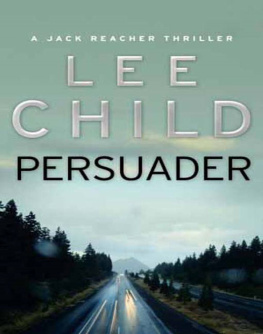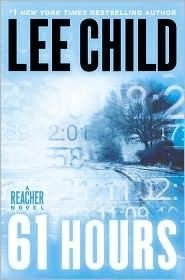Lee ChildOne Shot
ONE
FRIDAY. FIVE O'CLOCK IN THE AFTERNOON. MAYBE
THE HARDEST time to move unobserved through a city.
Or, maybe the easiest. Because at five o'clock on aFriday nobody pays attention to anything. Except theroad ahead.
The man with the rifle drove north. Not fast, not slow.
Not drawing attention.
Not standing out. He was in a light coloured minivanthat had seen better days. He was alone behind thewheel. He was wearing a light-coloured raincoat and thekind of shapeless light-coloured beanie hat that oldguys wear on the golf course when the sun is out or therain is falling. The hat had a two-tone red band all roundit. It was pulled down low. The coat was buttoned uphigh.
The man was wearing sunglasses, even though thevan had dark windows and the sky was cloudy. And hewas wearing gloves, even though winter was threemonths away and the weather wasn't cold.
Traffic slowed to a crawl where First Street started up ahill. Then it stopped completely where two lanesbecame one because the blacktop was torn up forconstruction. There was construction all over town.
Driving had been a nightmare for a year. Holes in theroad, gravel trucks, concrete trucks, blacktopspreaders. The man with the rifle lifted his hand off thewheel. Pulled back his cuff. Checked his watch.
Eleven minutes.
Be patient.
He took his foot off the brake and crawled ahead. Thenhe stopped again where the roadway narrowed and thesidewalks widened where the downtown shoppingdistrict started. There were big stores to the left and theright, each one set a little higher than the last, becauseof the hill. The wide sidewalks gave plenty of space forshoppers to stroll. There were cast-iron flag poles andcast-iron lamp posts all lined up like sentries betweenthe people and the cars. The people had more spacethan the cars. Traffic was very slow. He checked hiswatch again.
Eight minutes.
Be patient.
A hundred yards later the prosperity faded a little. Thecongestion eased.
First Street opened out and became slightly shabbyagain. There were bars and dollar stores. Then aparking garage on the left. Then yet more construction,where the parking garage was being extended. Thenfurther ahead the street was blocked by a low wall.
Behind it was a windy pedestrian plaza with anornamental pool and a fountain. On the plaza's left, theold city library. On its right, a new office building. Behindit, a black glass tower. First Street turned an abrupt rightangle in front of the plaza's boundary wall and ran awaywest, past untidy rear entrances and loading docks andthen on under the raised state highway.
But the man in the minivan slowed before he hit theturn in front of the plaza and made a left and entered theparking garage. He drove straight up the ramp.
There was no barrier, because each space had its ownparking meter. Therefore there was no cashier, nowitness, no ticket, no paper trail. The man in the minivanknew all that. He wound round the ramps to the secondlevel and headed for the far back corner of the structure.
Left the van idling in the aisle for a moment and slippedout of the seat and moved an orange traffic cone fromthe space he wanted. It was the last one in the old partof the building, right next to where the new part wasbeing added on.
He drove the van into the space and shut it down. Satstill for a moment. The garage was quiet. It wascompletely full with silent cars. The space he hadprotected with the traffic cone had been the last oneavailable. The garage was always packed. He knew that.
That was why they were extending it. They weredoubling its size. It was used by shoppers. That waswhy it was quiet.
Nobody in their right mind would try to leave at fiveo'clock. Not into the rush hour traffic. Not with theconstruction delays. Either they would get out by fouror wait until six.
The man in the minivan checked his watch.
Four minutes.
Easy.
He opened the driver's door and slid out. Took aquarter from his pocket and put it in the meter. Twistedthe handle hard and heard the coin fall and saw theclockwork give him an hour in exchange. There was noother sound. Nothing in the air except the smell ofparked automobiles. Gasoline, rubber, cold exhaust.
He stood still next to the van. On his feet he had a pairof old desert boots.
Khaki suede, single eyelets, white crepe soles, madeby Clarks of England, much favoured by Special Forcessoldiers. An iconic design, unchanged in maybe sixtyyears.
He glanced back at the parking meter. Fifty-nineminutes. He wouldn't need fifty-nine minutes. Heopened the minivan's sliding rear door and leanedinside and unfolded a blanket and revealed the rifle. Itwas a Springfield MIA Super Match autoloader,American walnut stock, heavy premium barrel, ten shotbox magazine, chambered for the.308. It was the exactcommercial equivalent of the M14 self-loading sniperrifle that the American military had used during his long-ago years in the service. It was a fine weapon. Maybenot quite as accurate with the first cold shot as a top-of-the-line bolt gun, but it would do. It would do just fine.
He wasn't going to be looking at extraordinarydistances. It was loaded with Lake City M852s. Hisfavourite custom cartridges. Special Lake City Matchbrass, Federal powder, Sierra Matchking 168-grainhollow point boat tail bullets. The load was better thanthe gun, probably. A slight mismatch.
He listened to the silence and lifted the rifle off the rearbench. Carried it away with him to where the old part ofthe garage finished and the new part began. There wasa half-inch trench between the old concrete and thenew. Like a demarcation line. He guessed it was anexpansion joint.
For the summer heat. He guessed they were going tofill it with soft tar.
Directly above it there was yellow and black CautionDo Not Enter tape strung between two pillars. Hedropped to one knee and slid under it. Stood up againand walked on into the raw new construction.
Parts of the new concrete floor were trowelled smoothand parts were rough, still waiting for a final surface.
There were wooden planks laid here and there aswalkways. There were haphazard piles of paper cementsacks, some full, some empty. There were more openexpansion joints. There were strings of bare light bulbs,turned off. Empty wheelbarrows, crushed soda cans,spools of cable, unexplained lengths of lumber, piles ofcrushed stone, silent concrete mixers. There was greycement dust everywhere, as fine as talc, and the smellof damp lime.
The man with the rifle walked on in the darkness untilhe came close to the new northeast corner. Then hestopped and put his back tight against a raw concretepillar and stood still. Inched to his right with his headturned until he could see where he was. He was about
Next page 
